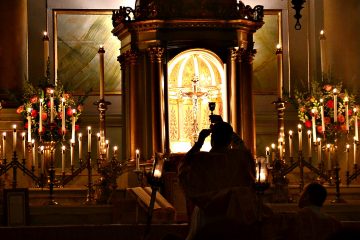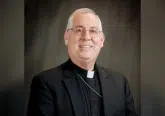What has Pope Francis changed about Mass intentions? A CNA Explainer
Rome Newsroom, Mar 16, 2022 / 08:47 am
One way Catholics can pray for people in need, both the living and dead, is through having a Mass said for that intention.
According to Church law, priests may accept a donation — often around $10 per Mass — for offering the celebration for that intention. If someone is unable to provide the donation, but would really like a Mass intention to be said, the stipend can also be waived.
The law does not say how many Mass intentions a priest or Catholic parish can accept, but stipulates that the number should not be more Masses than can be reasonably said in one year’s time.
So what happens if a priest, even with the best of intentions, accepts Mass intention offerings he cannot fulfill within the course of a year?
That’s the subject of a clarification to canon law which the Vatican published this week, following a small change Pope Francis made last month.
How Mass intentions work
“The Code of Canon Law allows for the faithful to request priests to say Mass for particular intentions, and it allows priests to accept an offering, a stipend, for those Masses to be celebrated,” Father Daren J. Zehnle told CNA by phone.
Usually, a Mass is celebrated for an individual or a group of people if they are connected in some way, such as a family or a nationality.
A priest can keep one Mass stipend per day, but should give any other stipends received to charity.
Zehnle, a priest and canon lawyer in the Diocese of Springfield, Illinois, said Church law states that “if we [priests] accept an offering or a stipend to celebrate a Mass that we’re under an obligation to make sure that we do fulfill that request, that we do say that Mass.”
What happens when a priest has too many intentions
One of the common solutions to this problem, Zehnle said, is to send the prayer intentions “to another priest, to another parish … that fulfill those intentions for them.”
“To reduce the number of Masses [the priests] have to say, the law used to require them to go to the Holy See for permission,” Father Pius Pietrzyk, a Dominican and canon lawyer in Washington, D.C., told CNA via email.
But on Feb. 15, Pope Francis issued a decree modifying some of the codes of Canon Law, including Canon 1308 on Mass intentions. The new code says that certain ordinaries — meaning diocesan bishops and supreme moderators of religious order priests — may grant permission to transfer the Mass intentions instead.
The new Canon 1308 says: “A reduction of the obligations of Masses, to be made only for a just and necessary cause, is reserved to the diocesan bishop and to the supreme moderator of a clerical institute of consecrated life or a society of apostolic life.”
On March 15, the Vatican clarified that a priest who cannot fulfill his Mass intention obligations “may still petition the Apostolic Penitentiary directly to keep them in the internal forum,” Pietrzyk said.
The Apostolic Penitentiary is the office of the Roman Curia responsible for issues related to the sacrament of confession, indulgences, and the internal forum, which is an extra-sacramental form of secrecy, or confidentiality, applied to spiritual direction.
A priest in this situation, Zehnle explained, “could contact his confessor about the situation, who then contacts the Apostolic Penitentiary and the Apostolic Penitentiary will give instructions as to how those Masses should be fulfilled or resolved.”
“Once the Apostolic Penitentiary does that, then the penitentiary makes a direct report to the pope to let him know what has happened.”













